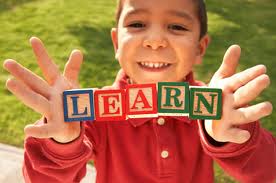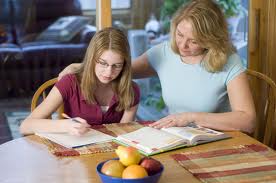by Rebecca Prewett
Recently I attended a state homeschooling convention. At least half the women there were wearing denim jumpers and had lots of children with them. If I decide to homeschool, will I need to buy a denim jumper and triple my family size?
Well, it depends. Some homeschoolers like to be nonconformists. In order to identify yourself as a nonconformist, you will need to wear the right kind of denim jumper, never cut your hair again, and have a larger than average family. All the boys will need to wear slacks and dress shirts whenever you’re out in public, and the girls will need to wear denim jumpers or pretty flowered dresses. Of course, if you don’t care about being a nonconformist, this doesn’t apply to you; you’re free to dress however you choose.
At the homeschooling convention I attended, some of the women had misplaced their handkerchiefs–which ended up on their heads. Please explain.
While some think this is a phenomena completely confined to the homeschooling community, it really isn’t. Nor is it a novel way to keep a handkerchief available at all times. And, yes, we’re even told that you can be Reformed and wear the prayer veiling at the same time (although we have not yet personally tested this theory).
I’m confused. Who is the real “father” of the homeschooling movement?
Depending on whom you ask, it’s:
a) Raymond Moore
b) John Holt
c) Bill Gothard
d) Richard Fugate
e) R.J. Rushdoony
f) any other guy who mentioned homeschooling before it was “popular”
g) there is no “father”, since it’s the mothers that usually do the homeschooling
h) Charlotte Mason
i) somebody else you’ve never heard about
j) any number of fathers who were homeschooling in the early 70’s
k) any big name you want to drop to make it sound like you know something
How can I spot “twaddle”?
Twaddle comes in many shapes and sizes. Sometimes one mother’s twaddle is another mother’s favorite unit study. However, twaddle can be recognized by the following unmistakable symptoms:
a) it wouldn’t pass muster with Charlotte Mason
b) it has something to do with the fireman being our friend
c) it’s found in curriculum materials catalogs designed for public schools
d) you would be embarrassed to discuss it with the Shearers
e) any reasonably conscious kindergartner already knows it
How can I get onto the cover of the Teaching Home?
Ask the Shearers. They have dedicated years of their lives in an attempt to grace the cover of that well-known magazine and have even written a song detailing their exploits. Then again, maybe you shouldn’t ask them; they still haven’t made it. Your best bet would be to have lots of multi-talented and photogenic children, and to spend your lives doing marvelous things while wearing matching Sunday outfits and posing in your beautifully appointed home.
I simply don’t know what to do. Everybody I know is so positive about homeschooling! I’m overwhelmed at the amount of support, encouragement, financial aid, and resources that all my friends and relatives keep giving me.
Hhhhhmm…that really is a distressing problem. Well, maybe it’s not distressing, but it sure is unusual! Truly a seldom asked question, and one to which we have no answer other than–please send all the good stuff our way.
I’d like to homeschool but I’m worried that my children won’t be isolated enough. You see, in the school they now attend, they are safely isolated from people who aren’t their age, with the exception of their teachers. But I’m afraid if they aren’t safe at school all day, they’ll be meeting all sorts of people in the community. What can I do?
It’s true that, if you homeschool your children, they will probably meet all sorts of adults in the community, everyone from the mailman and various repair men to the people you will meet on field trips. It is also true that they will tend to meet more people who are not their age than people who are. But I have yet to meet one homeschooling family that found this to be a disadvantage. Of course, it depends on how you define disadvantage. Your child may lose touch with the latest juvenile fads and probably won’t keep up on the current lingo. In fact, he may even end up sounding…well, sort of mature.
If I homeschool, will I have to wear Birkenstocks?
Again, it depends on if you want to be a nonconformist or not. It also depends on where you live. Nonconformist homeschoolers on the West Coast all wear Birkenstocks. A style with wide straps is preferable. Brown is usually the color of choice.
If I homeschool, will I have to raise goats and chickens? Will I have to bake my own bread and sew all of our own clothes?
This depends. Some people think that goats and homeschoolers go hoof in hand. Others suggest you invest the goat money in a good computer. Still others are allergic to goats, don’t like computers, and wouldn’t be caught dead near a sewing machine. But everyone knows that real homeschoolers bake their own whole-wheat bread, even if it’s just once a year.
How can you tell if someone is an “old-timer” at homeschooling?
Experienced and knowledgeable homeschoolers are easy to spot. The real old-timers predate the “homeschooling movement” and, no matter how well they’ve retained their youth, usually don’t look like someone just starting out with their first kindergartner, even though they might still be teaching phonics to one of their brood. The ages of their children, especially if they’ve never attended school, offers another clue. Having a completely homeschooled young adult generally qualifies one as an “old-timer”. These “old-timers” tend to be relaxed, confident, own a ton of books, have an anti-twaddle radar, posses a terrific sense of humor and/or an incredible amount of perseverance and vision, own at least one homeschooling tee-shirt, remember back when it was near impossible to get Christian textbooks, and know more than a lot of homeschooling authors do. The real “old-timers” are stockpiling phonics materials as their homeschool “graduates” prepare to teach the next generation. Or, they’re prepared to teach their adult children how to teach reading with just a Bible and a slate and maybe some index cards. And, if you happen to spot an “old-timer”, consider yourself blessed and glean from her experience. And don’t bother dropping names of homeschooling “fathers” around her; she may well have been homeschooling long before that “father” ever heard of the idea.
If you liked this check out other homeschooling tips and homeschooling humor articles along with homeschooling curriculum reviews here.
Source: Go milpitas




